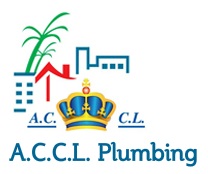Pipe insulation is a crucial aspect of maintaining efficient and safe plumbing systems in both residential and commercial buildings. By insulating pipes, you can reduce energy costs, prevent freezing, and minimize the risk of damage to your plumbing system.
Benefits of Pipe Insulation
– Energy Savings: Insulating pipes can help reduce heat loss, which can lead to significant energy savings.
– Freeze Prevention: Insulating pipes in unheated areas, such as garages or basements, can help prevent them from freezing during cold weather.
– Reduced Risk of Damage: Insulating pipes can help reduce the risk of damage caused by freezing temperatures, which can lead to costly repairs.
– Increased System Efficiency: Insulating pipes can help improve the overall efficiency of your plumbing system, reducing the risk of leaks and other issues.
Types of Pipe Insulation
– Foam Pipe Insulation: Foam pipe insulation is a popular choice for insulating pipes. It is easy to install and provides excellent thermal insulation.
– Fiberglass Pipe Insulation: Fiberglass pipe insulation is another common type of insulation. It is made from spun glass fibers and is often used in commercial applications.
– Rubber Pipe Insulation: Rubber pipe insulation is a flexible and durable option that provides excellent thermal insulation.
Best Practices for Pipe Insulation
– Identify Areas for Insulation: Identify areas where pipes are exposed to cold temperatures or heat loss, such as unheated garages or basements.
– Choose the Right Insulation: Choose the right type of insulation for your pipes, considering factors such as temperature, moisture, and durability.
– Install Insulation Correctly: Install pipe insulation correctly, ensuring that it is securely attached to the pipe and sealed at all joints.
– Regular Maintenance: Regularly inspect and maintain your pipe insulation to ensure it remains effective and efficient.
Common Areas for Pipe Insulation
– Unheated Garages: Pipes in unheated garages are susceptible to freezing during cold weather.
– Basements: Pipes in basements can be prone to heat loss and freezing.
– Outdoor Pipes: Outdoor pipes, such as those used for irrigation or outdoor faucets, can be susceptible to freezing.
– Attics and Crawlspaces: Pipes in attics and crawlspaces can be prone to heat loss and freezing.
By insulating your pipes, you can reduce energy costs, prevent freezing, and minimize the risk of damage to your plumbing system. By following best practices and choosing the right type of insulation, you can ensure your pipes remain efficient and safe.

